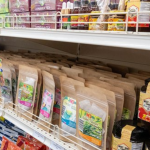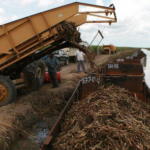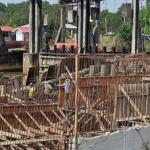Guyana’s coconut industry has seen significant expansion since 2020, with the government’s aggressive National Coconut Decentralisation Programme (NCDP) driving massive progress and exceeding expectations.
This initiative highlights the rising demand for coconuts and their by-products at the local, regional, and international levels.
Today, coconut ranks as the third-highest income earner in Guyana’s agricultural sector.
The establishment of the NCDP commenced with the commissioning of a $1.1 million coconut nursery at Kairuni along the Soesdyke-Linden highway in December 2020.
The event marked the increased accessibility of future coconut plants to meet farmers’ needs.
According to Minister of Agriculture Zulfikar Mustapha, “Farmers on the East Bank and Region 10 will no longer have to travel to the East Coast to purchase coconut plants.”
In the first year of the PPP/C administration, Guyana exported $2.5 billion worth of coconuts and related products.
To further increase productivity, 13,000 Brazilian dwarf coconut seed nuts were imported by the Ministry of Agriculture’s Hope Coconut Industries Limited (HCIL) in 2023, at a cost of $12 million.
This investment promises faster maturity and higher yield per annum. Moreover, this new variety is less susceptible to diseases.
Some 3,000 more Brazilian coconut seedlings were subsequently given to approximately 120 farmers in Pomeroon, enabling them to yield approximately 240 coconuts per tree.
The minister said, “We will continue those efforts and engage between 275 to 300 farmers who’ll benefit from seedlings so that we can further develop the industry and increase our export.”
Coconut production in 2023 reached 40,000, supplemented by the importation of an additional 13,000.
Nurseries were also commissioned in Regions Two, Three, Four, Six, and Ten in 2024.
In Region One, a coconut nursery was constructed and stocked for $4.3 million in Hosororo Village.
The ministry also partnered with experts to provide training programmes for farmers, invested in coconut shredders, and improved facilities, which include compound fencing and the construction of shade houses.
With over $1.2 billion invested in the coconut sub-sector over the past four years and continued efforts through decentralisation, the industry is poised for further expansion.
An additional 2,000 acres will be cultivated throughout 2025.





